Publications
Articles, publications, books, tools and multimedia features from the U.S. Institute of Peace provide the latest news, analysis, research findings, practitioner guides and reports, all related to the conflict zones and issues that are at the center of the Institute’s work to prevent and reduce violent conflict.
On the Issues: Iran Sanctions
The United Nations Security Council on June 9 voted to impose a fourth round of sanctions on Iran, targeting conventional arms and the finances of 40 Iranian companies. The U.N. Security Council decision was not unanimous as two of the 15 nations on the council -- Brazil and Turkey – voted against the measure. Lebanon abstained. In an update to a May 20 “On the Issues,” USIP experts Robin Wright, Dan Brumberg and George Lopez provide different views on the U.N. vote and whether these sanction...
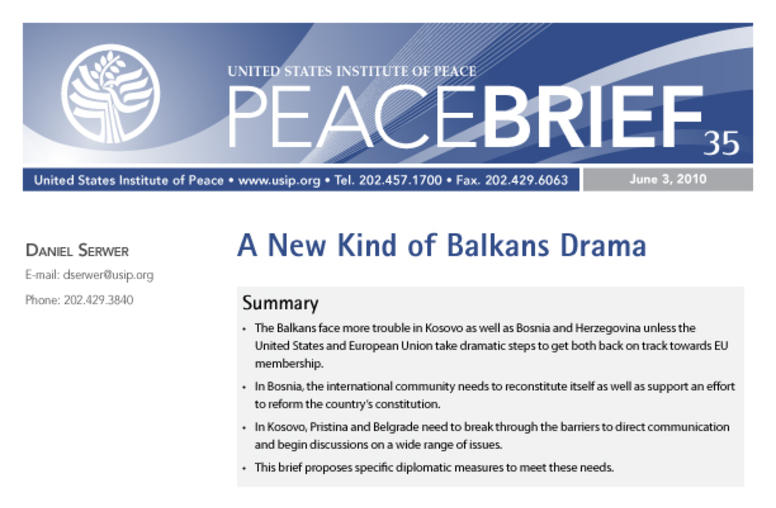
A New Kind of Balkans Drama
The Balkans face more trouble in Kosovo as well as Bosnia and Herzegovina unless the United States and European Union take dramatic steps to get both back on track toward EU membership.
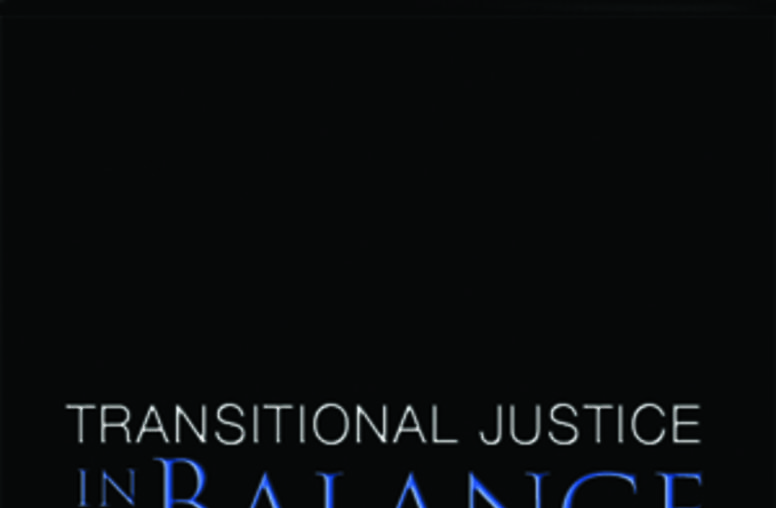
Transitional Justice in Balance
In the first project of its kind to compare multiple mechanisms and combinations of mechanisms across regions, countries, and time,Transitional Justice in Balance: Comparing Processes, Weighing Efficacysystematically analyzes the claims made in the literature using a vast array of data, which the authors have assembled in the Transitional Justice Data Base.
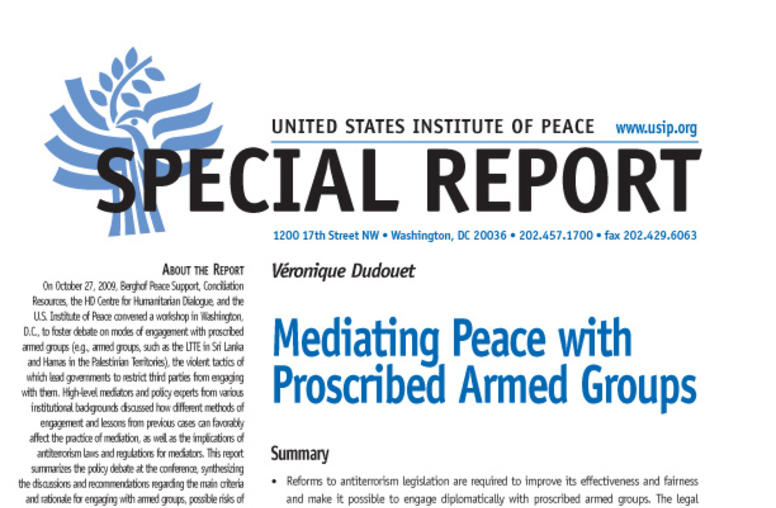
Mediating Peace with Proscribed Armed Groups
Summary Reforms to antiterrorism legislation are required to improve its effectiveness and fairness and make it possible to engage diplomatically with proscribed armed groups. The legal bases for proscription should be clarified and the criteria for delisting published. Listing and delisting instruments should be more nuanced and flexible. In addition, a separate legal and political component should facilitate engagement with proscribed groups in peace processes and humanitarian work...
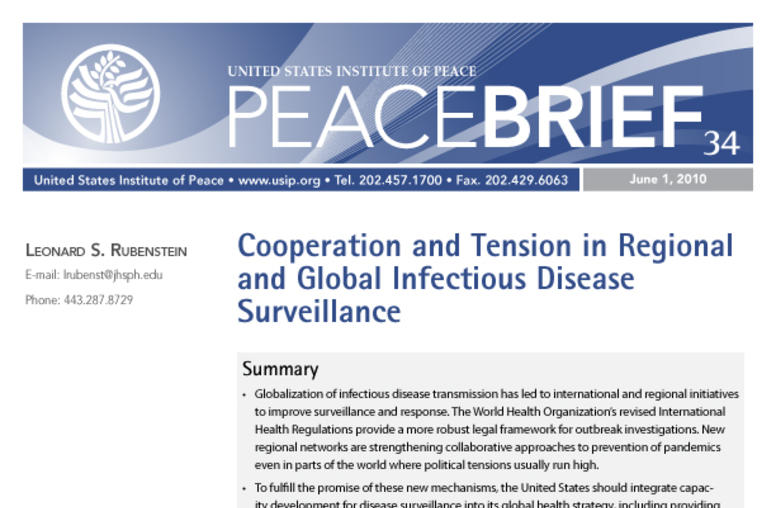
Cooperation and Tension in Regional and Global Infectious Disease Surveillance
Globalization of infectious disease transmission has led to international and regional initiatives to improve surveillance and response. The World Health Organization’s revised International Health Regulations provide a more robust legal framework for outbreak investigations. New regional networks are strengthening collaborative approaches to prevention of pandemics even in parts of the world where political tensions usually run high.

Working with Groups of Friends
This volume explores how peacemakers can productively work with informal mini coalitions of states or intergovernmental organizations that provide support for resolving conflicts and implementing peace agreements—an innovation often referred to as groups of “Friends.” This handbook is part of the Peacemaker’s Toolkit series, published by the United States Institute of Peace.
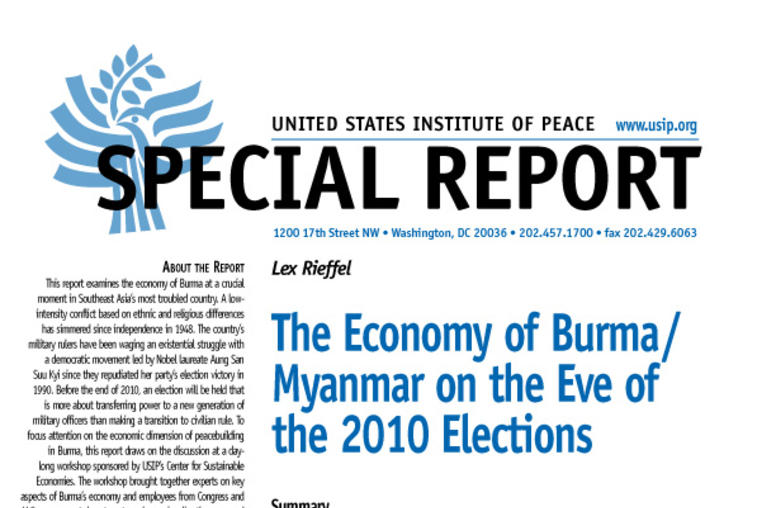
The Economy of Burma/Myanmar on the Eve of the 2010 Elections
Summary The government of Burma is undergoing a critical transition: Before the end of 2010, the military regime that has ruled the country since a palace coup in 1998 will hold an election based on a constitution drafted in a nondemocratic process and approved by a referendum in 2008. The referendum fell far short of global standards of credibility and the election is likely to yield a government that neither the antimilitary movement nor the international community views as legitimat...
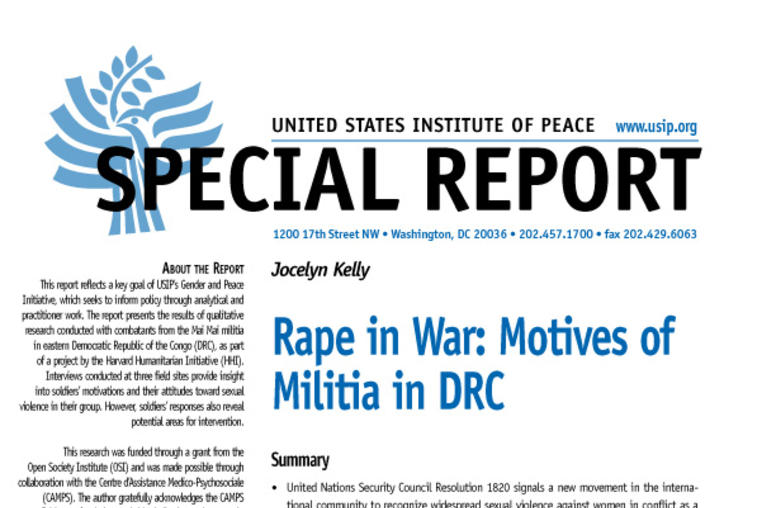
Rape in War: Motives of Militia in DRC
Summary United Nations Security Council Resolution 1820 signals a new movement in the international community to recognize widespread sexual violence against women in conflict as a threat to international peace and security. Research on sexual and gender-based violence (SGBV) has predominantly focused on victims and survivors of rape. A better understanding of the roots of SGBV in conflict, however, can only be gained by examining the experiences and motivations of perpetrators. SG...
On The Issues: Turkey and Its Relations with Iraq
On the eve of the U.S. withdrawal from Iraq, relations among Turkey, Iraq, and the Kurdistan Regional Government have been dramatically transformed for the better.
Food Security and Peacebuilding in Conflict-Affected Regions
As President Barack Obama outlines how the U.S. will address current and future security threats in his National Security Strategy, USIP’s Raymond Gilpin discusses why hunger is relevant to our concerns, and why providing humanitarian aid is not necessarily the best solution.